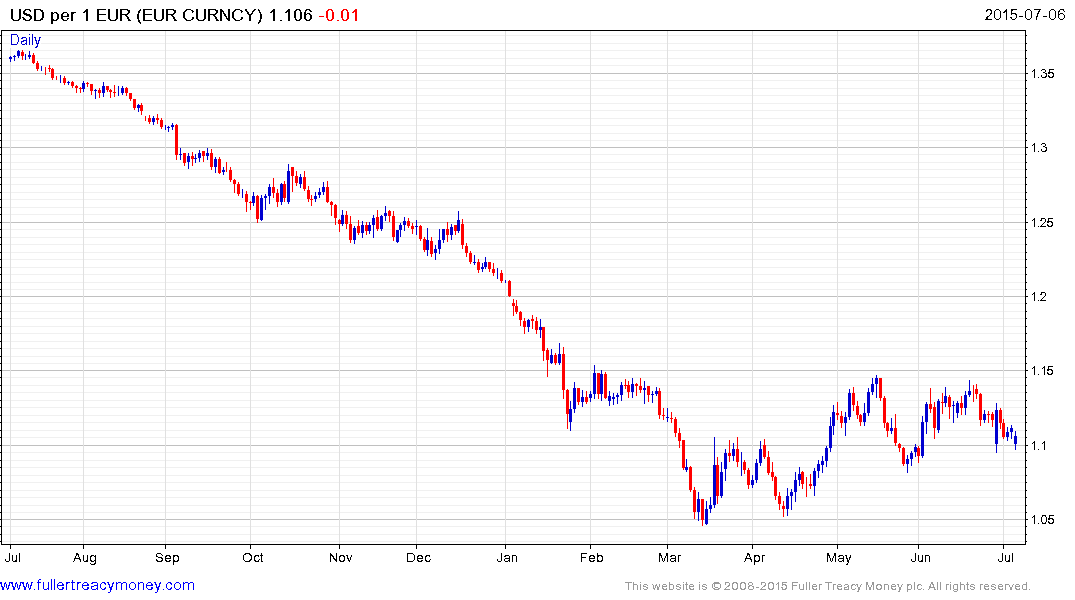The Hidden Monster Behind the Greek and Puerto Rican Crises
This article by Christopher Whalen for the National Interest may be of interest to subscribers. Here is a section:
In the EU, however, the lack of productivity growth in nations such as Greece, Portugal, Spain and Italy is putting pressure on the entire euro area to devalue the currency in order to provide short-term growth in terms of exports. In the case of Greece, an exit from the euro and sharp devaluation may already be in the cards as we wrote about in a recent KBRA research note.
Following the 2008 crisis, the euro remained very strong against the dollar, arguably too strong. But TNI readers should look for the euro to decline rapidly against the dollar in coming months. Central banks have already begun to shift their reserves out of euro and into dollars, according to the International Monetary Fund. At 21 percent of official reserves, euro holdings by global central banks are at the lowest level in thirteen years. “[The] Euro is headed for weakness,” notes David Kotok of Cumberland Advisors in an interview on Bloomberg Television. “Our view is parity in the near term then down to $0.85 in the long run.”
Greece’s Eurozone saga continues to garner column inches and despite the outcome of the referendum, there is still hope that the Greeks will be able to negotiate a deal that keeps the credit lines open. Regardless of the outcome, the ECB’s quantitative easing program will remain in place and has the potential to be front loaded if the need arises.

The Euro posted a large upward dynamic from the $1.10 area last Monday and firmed from that level again today. The ECB might now want a strong currency but at present a rout is much less preferable considering the damage it would do to confidence. Potential for some additional higher to lateral ranging and a continued reversion back up towards the mean can be given the benefit of the doubt provided it continues to hold the four-month progression of higher reaction lows.
Back to top


